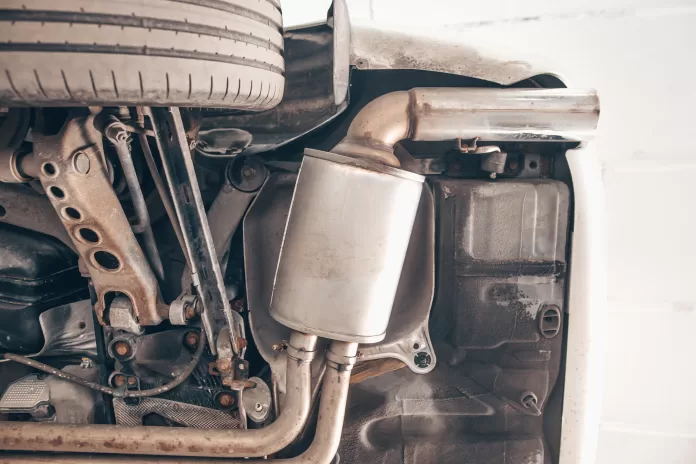Exhaust systems are highly susceptible to rust and corrosion, which can lead to expensive repairs and decreased effectiveness. So, how can you keep your exhaust system safe from rust and corrosion? Here are some effective strategies to protect your exhaust system from the damaging effects of rust and corrosion.
Choose the Right Material
When purchasing a vehicle or replacing components, opt for exhaust systems made from stainless steel or aluminized steel. Stainless steel is particularly effective, as it is resistant to rust and corrosion, this gives room for longer-lasting performance. Aluminized steel, while less robust than stainless steel, still offers better durability than traditional mild steel.
Regular Inspections
Regularly inspect your exhaust system for any signs of rust, cracks or holes. Early detection of these issues can help prevent more extensive damage. Look for discoloration, especially around weld joints and seams, which can indicate rust formation. Early detection allows for simpler repairs or replacements. If you’re not confident in your ability to inspect or maintain your exhaust system, it’s always best to consult with a professional mechanic. They can provide thorough inspections and recommend any necessary maintenance or repairs. Regular professional check-ups can help you curb potential issues before they escalate into bigger problems.
Keep It Clean
Keeping your exhaust system clean is vital in preventing rust. Regularly wash your vehicle, particularly after exposure to salt or corrosive materials. A thorough wash removes accumulated grime, dirt and salt that can trap moisture against the exhaust. Additionally, consider using a specialized rust-inhibiting spray on exposed areas to add an extra layer of protection.
Drive Your Vehicle Regularly
If your vehicle is rarely driven, moisture can accumulate in the exhaust system. Short drives may not allow the exhaust to reach the necessary temperature to evaporate water effectively. Try to drive your vehicle regularly and take longer trips to ensure moisture is expelled from the exhaust.
Use a High-Performance Exhaust System
Investing in a high-quality, performance-based exhaust system can aid in reducing rust-related issues. These systems often have better drainage designs and materials that resist corrosion. Research brands that prioritize durability and longevity when upgrading or replacing your exhaust system.
Apply Protective Coatings
Consider applying a high-temperature paint or sealant on the exterior of the exhaust pipes. These coatings can create a barrier against moisture and road debris, helping to prevent rust. Ensure that the product you choose is specifically formulated for high-temperature applications to maintain effectiveness without degrading.
Inspect Gaskets and Seals
Regularly check the gaskets and seals in your exhaust system. Damaged gaskets can lead to exhaust leaks, which may introduce more moisture and contaminants into the system. Replacing worn or damaged gaskets promptly can reduce the risk of corrosion.
Store your Vehicle Properly
If you have a classic car or a vehicle that you don’t drive regularly, store it in a dry, well-ventilated area. If possible, use a dehumidifier in the storage space to minimize moisture and humidity levels, which can help reduce the risk of rust developing over time.




